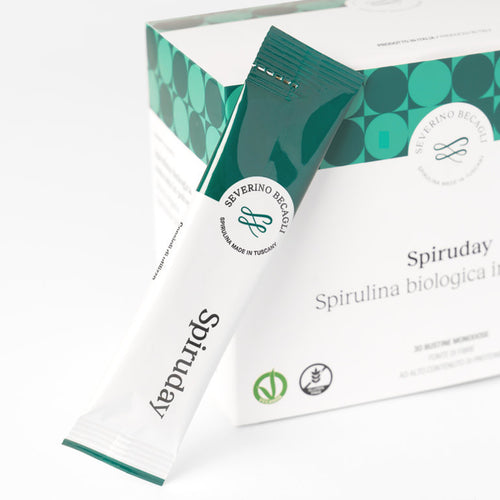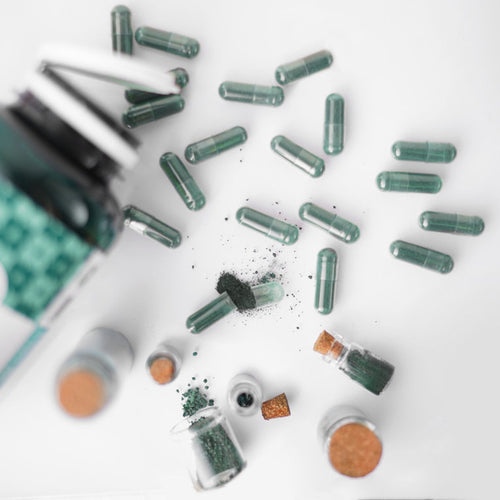The immune system can be defined as the set of cells and organs responsible for defending the human body: a natural shield that protects our body from external aggressions while keeping it healthy.
But what is it, exactly, and how does the immune system work?
The immune system is characterized by a rather complex mode of operation: the set of cells (each of which has specific functions) and circulating molecules work in symbiosis with the aim of immediately identifying foreign and potentially dangerous agents for the body. organism, such as bacteria, parasites, viruses and, last but not least, tumor cells. Through the synchronous work of these elements constituting the immune system, therefore, all the fundamental countermeasures to defend our body and keep it healthy are put into practice. This means that while we eat, work and sleep, the immune system works for us, it is always active and agile to intervene in emergency cases: for example in the case of a bacterial attack.
To understand how the immune system works, just think of a simple cold, the typical symptoms of which are sore throat, headache, cough and, in some cases, fever. These manifestations are nothing other than the response of our immune system, which once identified the presence of a potentially dangerous foreign agent for the organism sets in motion a defense reaction, which allows us to fight and eradicate it (sore throat, for example example, it is the response of our organism aimed at eradicating the bacteria settled in the oral and pharyngeal cavity).
Symptoms of low immune defenses
It has been seen that the immune system can be defined as a complex of organs, cells and tissues which, working together, are able to protect the body from the most varied foreign or potentially harmful elements for the organism (even tumor cells). Wanting to simplify as much as possible, we can say that the immune system, in simple words, to protect our body constantly raises barriers, triggering the reaction of certain cells capable of recognizing and immediately attacking the pathogenic element: these are the so-called white blood cells or leukocytes, including lymphocytes, monocytes, neutrophils and eosinophils. The natural barriers of our organism can be divided into two main types: physical and chemical barriers. The former are given by the skin, the respiratory and urogenital systems and the skin; while the latter are mainly represented by mucus, secretions and sebum.
But what happens when these naturally present barriers are lowered? The answer to this question is very simple: due to the lack of an effective protective response of the immune system, the tendency to get sick occurs more frequently, the standard of living drops considerably and a sense of weakness and tiredness is perpetually felt.
When the immune defenses are low it is easy to experience symptoms of constant discomfort, such as muscle and joint pain, red and dehydrated skin, anemia and other disorders (persistent cough, migraine, flu symptoms and slow healing of wounds and inflammatory conditions). In fact, when the immune defenses are low, we speak of the presence of a real pathology, the so-called "leukopenia", caused by the reduction in the quantity of white blood cells in the blood (these, as we have seen above, in fact represent the most important weapon of the body's defense against pathogens). The effective functioning or otherwise of the immune system is determined by many factors, starting from the natural aging process of the organism (it is normal that, with age, the defenses are lowered due to the natural aging of the body, which unfortunately it also affects the immune system). Further factors, such as stress, lifestyle and bad eating habits, can definitely lower our immune defenses with all the related consequences. The causes underlying a weakened immune system are therefore very varied, but can be grouped into two types: pathological and non-pathological causes: the former are responsible for the destruction (or simple weakening) of white blood cells and derive from a functional alteration of the immune system. The latter, however, are related to a wrong lifestyle, and in particular to excessive stress, the lack of sufficient intake of vitamin B12, the immoderate use of antibiotics and, sometimes, sudden changes in temperature.
Then there are some diseases or pathological states capable of lowering the immune system, weakening and breaking down the body's natural defenses: these are in particular AIDS (caused by the entry of the HIV virus into the body), autoimmune diseases (such as example rheumatoid arthritis, lupus erythematosus and many others), blood tumors (for example leukemia) and, last but not least, some viral or bacterial infections, as well as hyperthyroidism and infectious mononucleosis. In other cases, the weakening of the defenses results from taking certain drugs, for example chemotherapy or immunosuppressants. The most frequent causes, however, are given by a bad lifestyle, in particular by an incorrect diet and by the emotional characteristics of a subject (anxiety and stress, if perennial or particularly prolonged, can favor the lowering of defenses).
Let's now look at the most important consequences of a weakened immune system, as well as risks and further symptoms.
The risks of low immune defenses
Since the immune system has the purpose of protecting us from external aggressions, such as viruses, germs and bacteria (or internal in the case of tumor cells), if the natural defense levels are lowered we face a series of unpleasant consequences which, in fact, derive from attack by external enemies. If the immune defenses are low it is easy for recurrent infections to occur, especially in the urinary tract and digestive system. Another typical symptom is given by allergic manifestations, which if prolonged certainly demonstrate a lowering of defenses. When our body does not defend us from external aggressions, it is easy to experience circulatory disorders, constant tiredness and exhaustion (but also recurrent feverish and/or flu-like states, coughs and muscle pain). In some cases our body may show a poor response to therapeutic treatments, carried out for example through the administration of antibiotics: this can also represent a typical symptom of a low immune system.
How to improve the immune system
To strengthen the immune system it is first necessary to change one's eating habits and eliminate vices and incorrect behaviour, starting with smoking and alcohol. It is necessary to introduce foods rich in vitamin C and Omega 3 (for example oily fish, salmon, nuts, fish oil and many others), but also probiotics and lactic ferments. In fact, the substances contained in these products are able to reach the organs responsible for the body's defense: the stomach, the intestine and the digestive system, responsible for the production of defense barriers. To strengthen your defenses we recommend introducing a good dose of fruit and vegetables into your daily diet, limiting the consumption of fatty foods and increasing probiotics. Dried fruit and foods rich in vitamin "E" and "C" (such as kiwis and citrus fruits) are also excellent.
To strengthen our defenses it is also necessary to take iron and selenium (two fundamental minerals for our physical well-being), without forgetting the importance of good restful sleep and constant physical activity (scientific research has highlighted that sport is able to enhance the function of neutrophils: a cellular compound of white blood cells responsible for the body's defense).
Among the most effective natural products for strengthening the immune system there is certainly spirulina algae , which if consumed in the right doses is capable of strengthening the body's natural defenses and exerting a notable energizing action, thanks to the supply of vitamins and of mineral salts necessary for the well-being of the body: such as iron, potassium, magnesium and calcium. With its powerful antioxidant, purifying, detoxifying and protective action on the body, spirulina algae is truly one of the immune system's best health allies. The product can also be taken in the form of food supplements, which help the body to prevent seasonal diseases and to strengthen natural barriers against agents potentially harmful to the body, while at the same time exerting a notable anti-anemic action.
For this reason we recommend that you combine spirulina algae with a healthy balanced diet, which includes the aforementioned nutrients.
Always choose organic spirulina from an Italian and controlled supply chain, it is important to use a quality algae dried at low temperatures, such as that of Severino Becagli, to benefit from all its properties.







